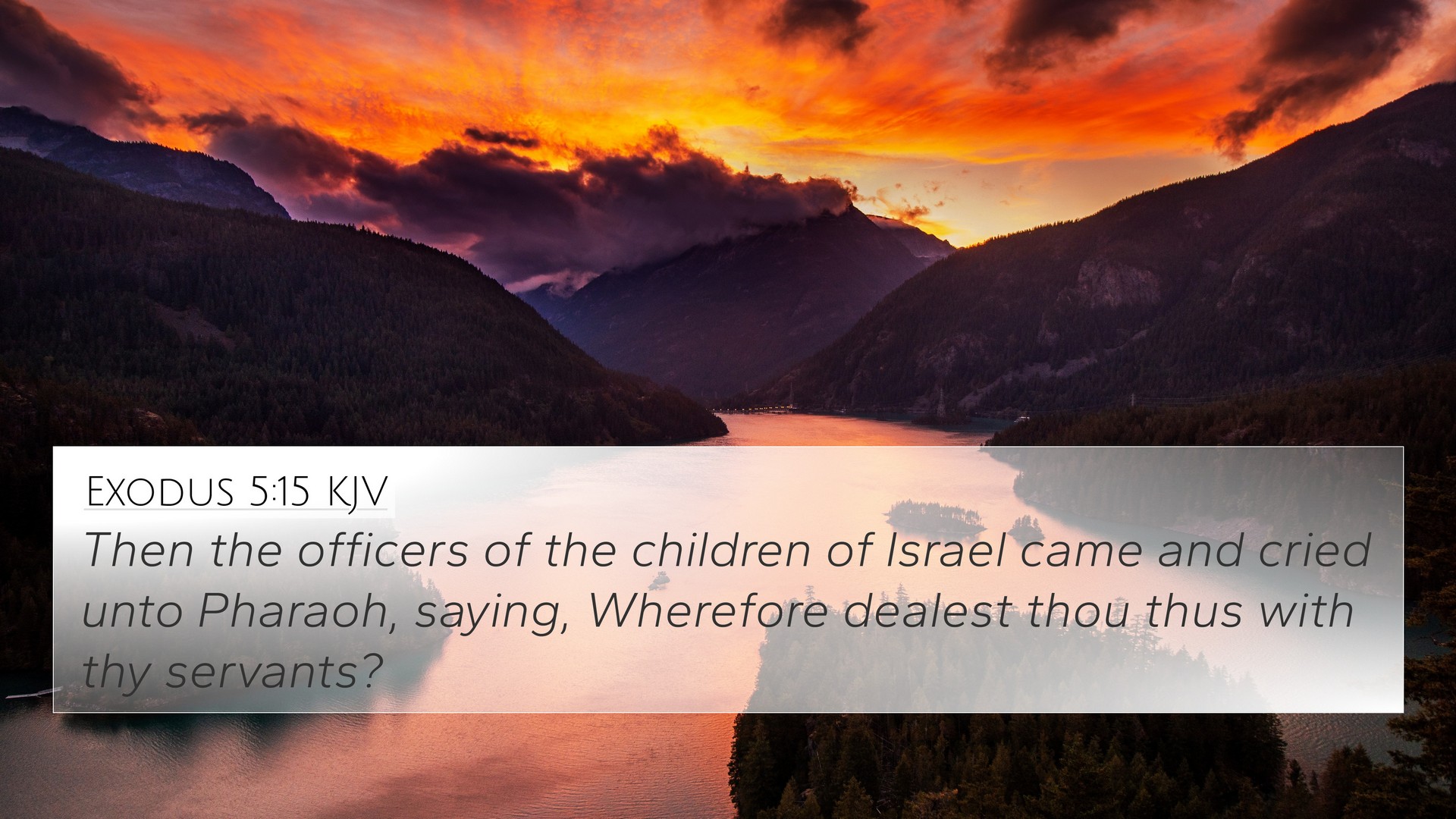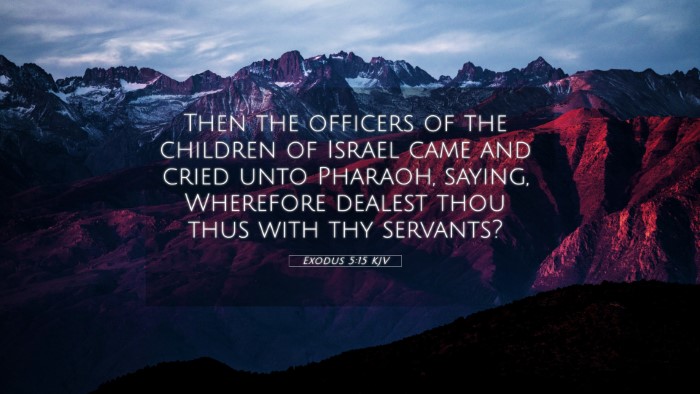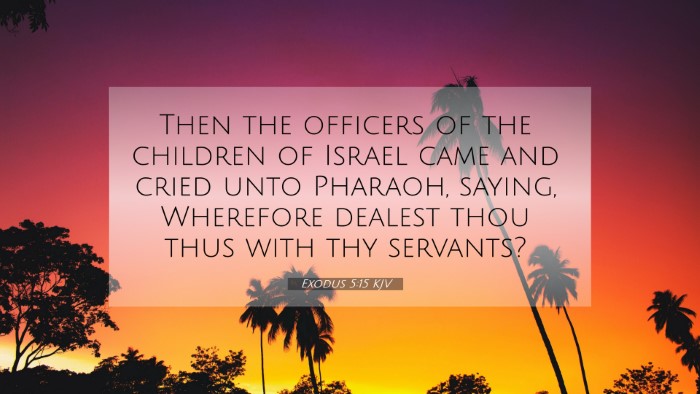Understanding Exodus 5:15
Bible Verse: Exodus 5:15
“Then the officers of the children of Israel came and cried unto Pharaoh, saying, 'Wherefore dealest thou thus with thy servants?'”
Summary of Meaning
The verse captures a pivotal moment during the Israelites' oppression in Egypt. The officers, representing the laborers, approach Pharaoh to appeal for relief from the burdens imposed upon them. Their response reflects the deepening desperation and suffering experienced under the heavy hand of bondage.
Commentary Insights
-
Matthew Henry's Commentary:
Henry notes that the Israelites' officers are caught in the tension of their situation – they are essentially the middlemen of oppression, having to relay the increasingly dire circumstances of their people to Pharaoh. Their lamentation illustrates the human suffering endured and the raw emotion of pleading for mercy.
-
Albert Barnes' Commentary:
Barnes emphasizes the irony in the worship of the Egyptians and their indifference toward the heartfelt cries of the Israelites. He points out that the officers are asking why Pharaoh continues to impose hardships, indicating that their situation has become unbearable, and they have turned to seek the ruler’s attention for alleviation.
-
Adam Clarke's Commentary:
Clarke analyzes the desperation of the Israelite officers, suggesting that their appeal showcases not only their suffering but also their loyalty and commitment to both their people and Pharaoh. Their inquiry reflects the deep agony of the Israelites, weighed down by unjust demands, hoping against hope for a change in their plight.
Bible Cross-References
- Exodus 2:23: “And it came to pass in process of time, that the king of Egypt died: and the children of Israel sighed by reason of the bondage, and they cried.”
- Exodus 3:7: “And the LORD said, I have surely seen the affliction of my people which are in Egypt, and have heard their cry by reason of their taskmasters; for I know their sorrows.”
- Exodus 5:1: “And afterward Moses and Aaron went in, and told Pharaoh, Thus saith the LORD God of Israel, Let my people go, that they may hold a feast unto me in the wilderness.”
- Exodus 14:10: “And when Pharaoh drew nigh, the children of Israel lifted up their eyes, and, behold, the Egyptians marched after them; and they were sore afraid.”
- Psalms 106:44: “Nevertheless he regarded their affliction, when he heard their cry.”
- Isaiah 19:20: “And it shall be for a sign and for a witness unto the LORD of hosts in the land of Egypt: for they shall cry unto the LORD because of the oppressors, and he shall send them a savior, and a great one, and he shall deliver them.”
- Acts 7:34: “I have seen, I have seen the affliction of my people which is in Egypt, and I have heard their groaning, and am come down to deliver them.”
Thematic Connections
The plea of the Israelite officers can lead to broader themes of suffering, deliverance, and the response of God to His people’s cries for help. The narrative not only reflects on the immediate plight of the Israelites but also foreshadows God’s deliverance through Moses, as seen in subsequent chapters.
Inter-Biblical Dialogue
Connections can be drawn between the plight of individuals in bondage throughout the scriptures. The calls to liberation echo in various forms, leading to a conversation between the Old and New Testaments regarding divine rescue.
- John 8:36: “If the Son therefore shall make you free, ye shall be free indeed.”
- Romans 8:21: “Because the creature itself also shall be delivered from the bondage of corruption into the glorious liberty of the children of God.”
Conclusion
Exodus 5:15 poignantly depicts the cries of a suffering people seeking justice from their oppressor. Utilizing cross-referencing tools, readers can explore interconnections throughout scripture that deepen understanding of themes such as oppression, deliverance, and divine mercy. Such explorations enrich the biblical narrative and provide insights on how faith can seek liberation amidst trials.


